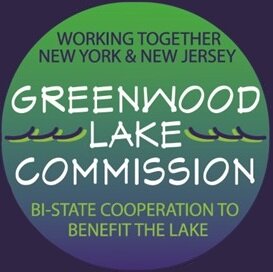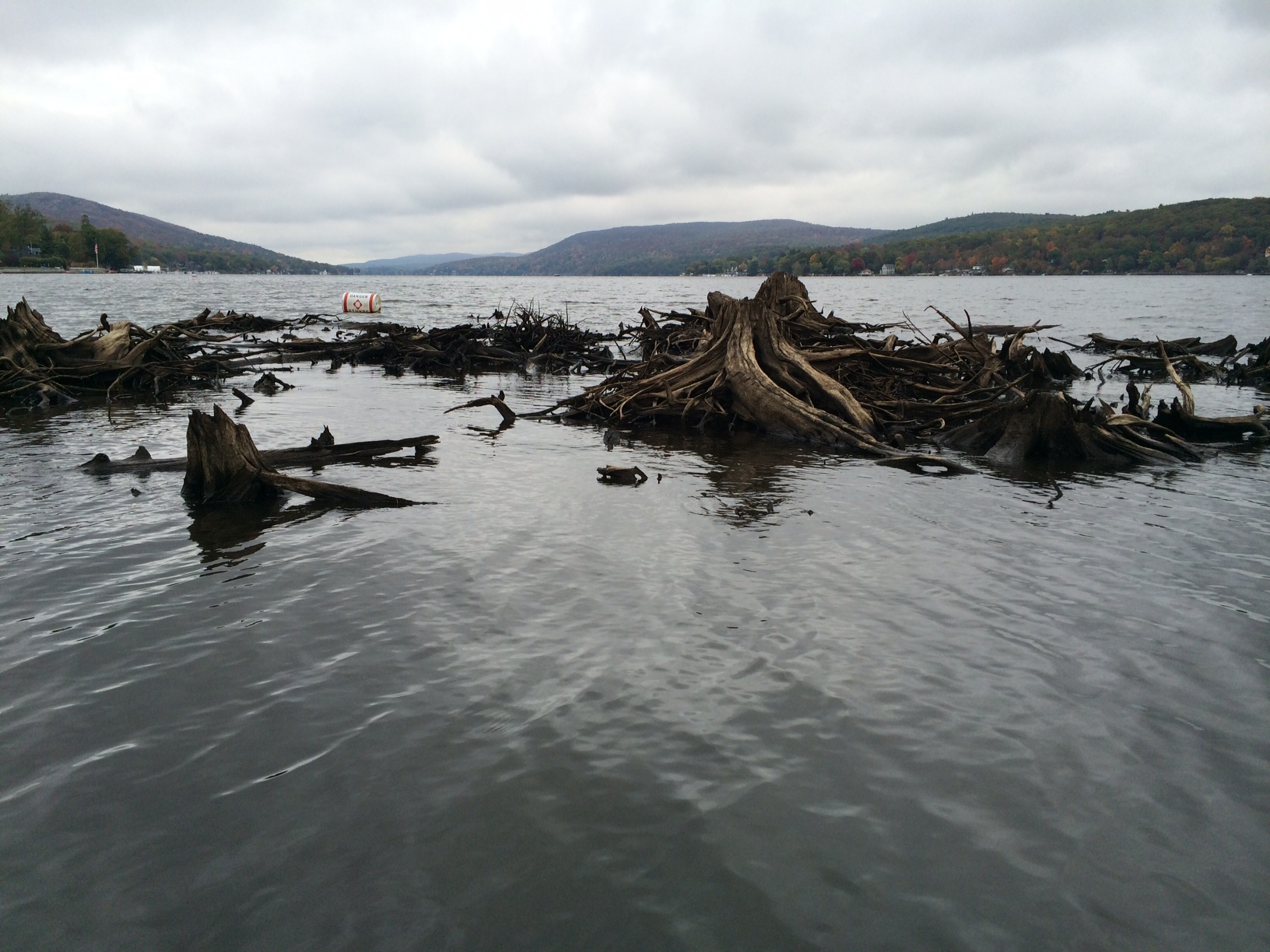Floating WEtland Islands
GWLC has been awarded funds to implement measures in Belcher Creek to reduce nutrient load to Greenwood Lake in efforts to decrease HABs. One such measure that will be implemented is the installation of Floating Wetland Islands. These islands are planted with native vegetation and the plant community on the island will use nutrients in the creek to grow, preventing it from fueling algae blooms in the lake, to some extent. GWLC is looking for volunteers who are interested in assisting in the planting of these islands in the near future. Due to COVID-19 restrictions on public gatherings and availability of plants, there is no concrete date as of yet so we are just soliciting interest for those who want to be contacted to help once there is a date established. This is a great opportunity to help the community and local ecosystem to grow and become more healthy together.
Lake Clean Up contributions
Every year the Greenwood Lake Commission works diligently to preserve the natural, economic and recreational resources of Greenwood Lake. This year we are focusing our spring efforts on raising funds to control the aquatic weed growth, waterfowl population and navigational hazards within the lake. The commission is inviting all boaters, residents and community members who utilize the lake to become involved with the commission’s lake preserving efforts by donating to help fund our core initiatives. By tackling these core issues, the commission will be able to preserve the safety, economic and recreational quality of the lake.
Scan to Donate Today
Aquatic Weed Control
Overgrowth of aquatic weeds can be detrimental to a lake for several reasons; such as interfering with or prohibiting recreational activities. Interfering with a balanced fish population in the lake, creating quiet areas where mosquitos can breed and impede water flow. It is imperative that the aquatic weed growth in Greenwood Lake is managed every year so that the lake quality can be preserved and boating safety is maintained.
Navigational Hazards
Removing floating stumps fields is one way the commission works to insure that Greenwood Lake is safely passable by all watercraft. Also, by clearing areas of the lake, such as Belcher’s Creek, by removing weeds, sediment, and debris is another way the commission will improve water quality throughout the lake.
Waterfowl
Control
While many just think of geese and the like as nuisances, they actually can create an unhealthy environment when they make a lakefront their home. Not only do they feed on vibrant plant life around the lake, but they also leave behind their excrements that are full of bacteria that affects the water quality of the lake, potentially sending the bacteria levels within the lake to unhealthy levels. Each year, the commission works to reduce the amount of waterfowl that make Greenwood Lake their home.
WAYS YOU CAN HELP
Attend monthly Commission meetings on the fourth Wednesday of every month
Contact your local, county, state, and federal legislatures to support ongoing efforts of the Commission
Limit use of fertilizers and pesticides (only non-phosphorus fertilizers are permitted)
Use and dispose hazardous products properly
Do not pollute storm drains
Clean up after your pet
Don't feed wildlife
Pump out septics every 3 years
Replace foam dock floats with rigid plastic floats
Don't litter
Dispose all waste properly
KNow your LAKE REGULATIONS
Speed limit: 45MPH from dawn to dusk / 15MPH from dusk to dawn
Permits are required for replacing and/or building a new bulk head and/or boat house
Permits are available from NJ DEP and NY DEC for use of herbicides
DOCK REGULATIONS/REPAIR
Retaining walls, seawalls, bulkheads, etc. would be considered an improvement to a single family dwelling, and are eligible for a Highlands Rules "in-house" exemption under 7:38-2.4(b)1. "In-house" means you don't have to apply for a formal Highlands exemption. This "in-house" exemption is valid, so long as it pertains to a single family dwelling lawfully in existence on August 10, 2004 or prior, and provided the lot upon which the home is situated has not been further subdivided since August 10, 2004. All other property owners (such as commercial marinas) must apply for, and receive, a formal Highlands exemption, NJAC 7:38-2.3(a)4. West Milford is authorized to issue these latter exemptions.
There any number of Freshwater Wetlands permits that may/may not be required, depending on each particular situation of what the land owner would like to do. These may include General Permit Nos. 1, 13, 19, 20, and 26 or in some cases an Individual Permit. In some situations, a Freshwater Permit is not required. There are many scenarios with near and in-water situations, and sometimes there is no easy answer on whether permits are required. The NJDEP should be contacted for guidance on your individual circumstance.
Under the Flood Hazard Rules, what permits may/may not be required also depends on the particular situation, no easy answer. However, if needed, available permits are Permit-By-Rule and Individual Permit. Again, call the NJDEP for guidance.
Due to its being an interstate water, Greenwood Lake is a non-assumed water; therefore, in addition to any required DEP permits, property owners must apply to and receive a Nationwide Permit from USACOE.





